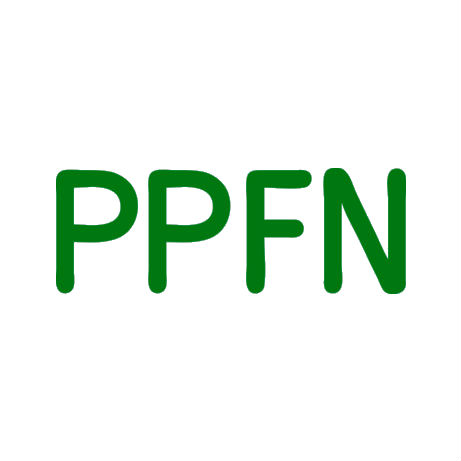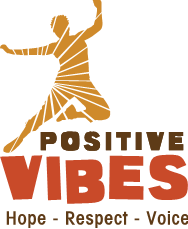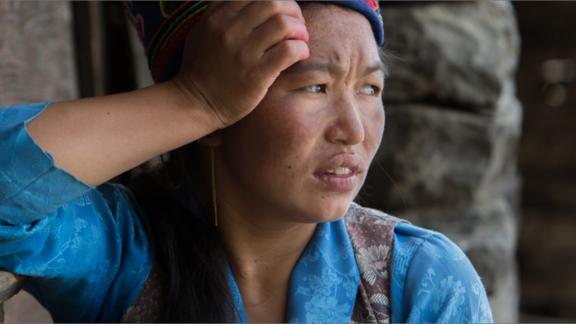

| 31 March 2016
Planned Parenthood Association of Sierra Leone
The Planned Parenthood Association of Sierra Leone (PPASL), established in 1959, works on a range of serious sexual and reproductive health (SRH) issues to improve people's health and quality of life. A key focus is to improve access to maternal health care, to reduce the risk of maternal and infant death. PPASL accesses the community through 5 service points, 12 workplace outreach projects, and 3 youth centres, via a 40-strong permanent staff team, backed by nearly 300 volunteers, 9 community-based distributors (CBDs) and a Youth Action Movement membership of 150. There is a 90% prevalence of female genital mutilation (FGM) in the country, and finding ways to handle the attendant psychological and physical trauma is one of the organization’s major challenges. Much of PPASL’s work is directed towards behaviour change communication (BCC) among community leaders, police and army personnel and Muslim and Christian groups. Safe motherhood, family planning, and the sensitisation of young people to SRH concerns are also central to the direct services which PPASL provides. The Member Association works in partnership with government health and development ministries and the Sierra Leone Armed Forces Hospitals. Non-governmental organization (NGO) partners include the Reproductive Health Service, CHASL, MSSL, National AIDS Secretariat/SHARP and the Marie Stopes Society. PPASL receives financial support from UNFPA, UNICEF, UNAIDS, the Global Fund for HIV/AIDS, Plan International, MOHS & RH UNIT, Marie Stopes Society, SL Red Cross Society and Action Aid. Contacts Website: www.ppasl.org Facebook: https://www.facebook.com/groups/454639337890032/

| 31 March 2016
Planned Parenthood Federation of Nigeria
As the statistics show, Nigeria faces considerable sexual and reproductive health (SRH) challenges. Established over 25 years ago, the Planned Parenthood Federation of Nigeria (PPFN) is one of the country’s most experienced SRH organizations and nationally, it delivers around 10% of all family planning services. Its work extends to voluntary counselling and testing (VCT) in HIV and AIDS, antenatal and post-natal care, post-abortion care, infertility diagnosis and counselling, and education and counselling on sexually transmitted infections (STIs) including HIV and AIDS. PPFN’s network of service delivery points is substantial: it has over 2,300 distinct service points. This includes 68 permanent clinics, 1,558 associated clinics and 27 community-based services (CBSs). The team consists of 110 permanent staff, over 750 volunteers and a Youth Action Movement membership of 350. Working together, they deliver a phenomenal number of sexual health services. PPFN partners closely with the Nigerian government to deliver services and providing technical guidance on policy development and implementation. It works in collaboration with other non-governmental organizations (NGO) and with private sector companies including The Central Bank of Nigeria, the National Agency for the Control of AIDS, Allied Products Plc and Nigeria Breweries. PPFN receives financial support from the UNDP, the Global HIV/AIDS Initiative, Pathfinder Nigeria, and IPPF’s Japan Trust Fund.

| 03 April 2025
Positive Vibes
Positive Vibes is a progressive, Namibian-registered organization that focuses on advancing queer rights and human rights in Southern, East, and West Africa, as well as in Southeast Asia, Southwest Asia, and Central America. The organization works at the intersection of human rights, health, and Sexual and Reproductive Health and Rights (SRHR) to create an inclusive society where all individuals, regardless of gender, sexuality, or background, have the opportunity to participate in civic, developmental, and political processes, including making decisions about their sexual and reproductive health. The organization supports marginalized and vulnerable groups, including LGBTQ+ individuals, sex workers, and women-led groups, by ensuring access to comprehensive SRHR services and promoting social, policy, and structural change. Positive Vibes empowers these communities to raise their voices, engage at local and national levels, and contribute to positive change. Their approach is grounded in the belief that people have the right to lead their own lives and movements, strengthening communities to achieve broader goals of social inclusion, justice, equity, and comprehensive sexual and reproductive health rights for all.
| 26 October 2022
Reproductive Health Network Kenya
The Reproductive Health Network Kenya (RHNK) is a network of health professionals within private and public facilities committed to Comprehensive Sexual and Reproductive Health and Rights, advocacy and service provision. The network was formed to provide evidence-based information and quality comprehensive reproductive health services in Kenya. RHNK’s main strategic goal is to contribute to the reduction of maternal morbidity and mortality with a focus on the two among other five causes of maternal mortality and morbidity which is postpartum haemorrhage and unsafe abortion. RHNK runs a network of trained Adolescents and youth headed by RHNK adolescents and youth program officer. The adolescents and youth network is effective in providing CSRH information, referrals and linkage to services. With the rising opposition which was witnessed immediately after the reinstatement and expansion of the global gag rule also known as the Mexican policy, RHNK with other civil society organizations developed Strategies to counter opposition. The pool of RHNK trained health care providers to provide SRH information and services, including comprehensive abortion care across the country. Training of the network providers on SRHR Law, policies and communications. RHNK works with the Center for Reproductive Rights CRR who provides strategic litigation and pro-bono legal support to the Network providers. Read the RHNK 2021 Annual Report here. Follow RHNK on Twitter, Facebook and You Tube. See the RHNK website here.

| 31 March 2016
Reproductive Health Uganda
The people of Uganda face urgent sexual and reproductive health (SRH) issues, with high prevalence of HIV and AIDS and unmet needs for contraception presenting some of the most immediate and life-threatening risks. Reproductive Health Uganda (RHU), formerly the Family Planning Association of Uganda, was established in 1957. It now provides services in 29 of the country’s districts through 768 service points: 17 static clinics, 74 mobile facilities, 35 associated clinics and a network of hundreds of community-based distributors/community-based services (CBDs/CBSs). RHU's comprehensive range of services include family planning, the prevention and treatment of HIV and AIDS, the diagnosis of sexually transmitted infections and post-abortion care. The work is led by a full-time staff of 19, supported by nearly 4,000 volunteers. These include 56 community-based distributors, 118 peer educators and a Youth Action Movement which has nearly 1,000 members. An estimated 98% of RHU's clients are poor, marginalized, socially excluded and/or under-served. Target groups include internally displaced persons, young women in conflict-affected areas, sex workers, hawkers, saloonists, bicycle taxi operators and maids. RHU undertakes high level advocacy work. At present, advocating for policies and government action to end female genital mutilation (FGM) is one of its top priorities. RHU runs training schemes for other non-governmental organizations (NGOs) and health professionals. RHU representatives sit on the government’s SRH advisory board and RHU has played a critical role in shaping, developing and implementing policies on gender, adolescent reproductive health, domestic relations, safe motherhood, and private partnerships for health. RHU provides technical assistance to IPPF Member Associations (MAs) in Swaziland, Sierra Leone, Tanzania, Namibia and Rwanda. RHU works with an immense range of NGOs and private sector organizations and it receives funding and support from over 20 different donors based locally, regionally, nationally and internationally. The organization is a national convenor: bringin together a broad range of agencies in Uganda which are engaged in campaigning and delivering services to coordinate work and synthesize efforts within the country for maximum impact. Contacts Website: www.rhu.or.ug Facebook: https://www.facebook.com/rhuganda Twitter: https://twitter.com/RHUganda
| 21 November 2022
The Soul City Institute for Social Justice
The Soul City Institute for Social Justice (SCI) is an intersectional feminist non-governmental organization that is internationally and locally recognized for its innovation and expertise over two decades in Social and Behaviour Change Communication (SBCC). The SCI’s primary focus is to work with young women and girls (ages 10 – 35 years) to develop and grow as feminist activists and leaders committed to strengthening movements and advancing the broader agenda for the rights and wellbeing of young women. The institute also works with men and boys as a secondary focus to promote gender equality and the development of feminist allies. The Institute’s vision is to ensure that young women and girls fully realize their human rights in a just society and can live with dignity and self-determination and have the health and well-being to grow, flourish and reach their full potential. It supports and amplifies young women’s feminist consciousness, voice, agency, and activism to dismantle patriarchy, protect their rights and enable their self-determination. The SCI’s programmes operate at multiple levels to influence individuals, communities, and the socio-economic and political environment. It harness popular culture for social change with prime-time dramas and talk shows on television and radio, combined with social media and print, social mobilization, and policy advocacy. The SCI approach is unique in that it combines multiple-level strategies at scale. Over the years we have reached over 80% of South Africa through our various programmes and our brand – Soul City - is loved and trusted, with two generations of South Africans having grown up with us. At least three communities the country have so identified themselves with our programmes that they have named themselves Soul City. SoulCity count total clinics Nationally. They provide SRH services (teenage pregnancy screening, contraceptives, PrEP & PEP, CTOP, condom distribution, Cheka Impilo (BP, BMI, diabetes), HTS, TB screening. Follow The Soul City Institute for Social Justice (SCI) on Twitter, Facebook and You Tube. See the RHNK website here.








